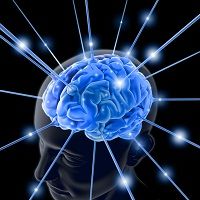Neuropathic Pain Treated with Antidepressants
Neuropathic pain may be reduced when patients take antidepressants that alter a brain pathway, according to a recent study.

Neuropathic pain may be reduced when patients take antidepressants that alter a brain pathway, according to findings published in the Proceedings of the National Academy of Sciences (PNAS).
Researchers from The Mount Sinai Hospital used mice models with chronic neuropathic pain in order to demonstrate the abilities of common antidepressants to counter both pain and depression related symptoms. The researchers built this study around prior research, which demonstrated that pain often leads to depression. In those studies, tricyclic antidepressants (TCA) and selective serotonin norepinephrine inhibitors (SNRIs) were used to effectively counter pain and depression related symptoms.
The researchers found that the gene RGS9 controlled the molecular directions for recovering for pain and depression. The protein the gene is related to is known as RGS9-2. Mice without the RGS9 gene responded much sooner to low doses of antidepressants than the mice with the gene. The mice without the gene additionally demonstrated significant improvement of sensory deficits, the researchers found. Mice without the gene who responded well to the low antidepressant doses did not have signs of depression related behaviors.
“We found that the molecular pathways required for recovery from neuropathic pain are controlled by RGS9-2,” Vasiliki Mitsi, a PhD student in the Zachariou lab at the Icahn School of Medicine at Mount Sinai explained in a press release. “In addition, we discovered that by inhibiting RGS9-2, the function of hundreds of other molecules that are important for pain-relief and mood-elevation was boosted.”
In the future, this mechanism could provide insight into better treatments for both nerve pain and depression, the researchers believe. The treatments which target both the brain reward center and the pain transmitters in the spine would likely be the most effective.
It is likely that antidepressants target monoamines, the researchers continued, based on the results of the study. The signal chemicals in the brain which regulate chronic pain and depression act in the nucleus accumbens and may pass messages to nerve cells through the RGS9-2 protein.
“Our data reveals that antidepressants that target specific neurotransmitters in the brain, particularly TCAs and SNRIs, regulate chronic pain and depression-related symptoms through actions in the nucleus accumbens,” continued Venetia Zachariou, PhD. “We don’t yet know if the typical pain processing pathways in the spinal cord and the pathways we’ve identified in the brain reward center are directly linked, but we now know more about the cellular pathways that need to be activated in order to achieve pain relief and that effective therapeutics must target both pathways.”